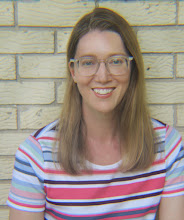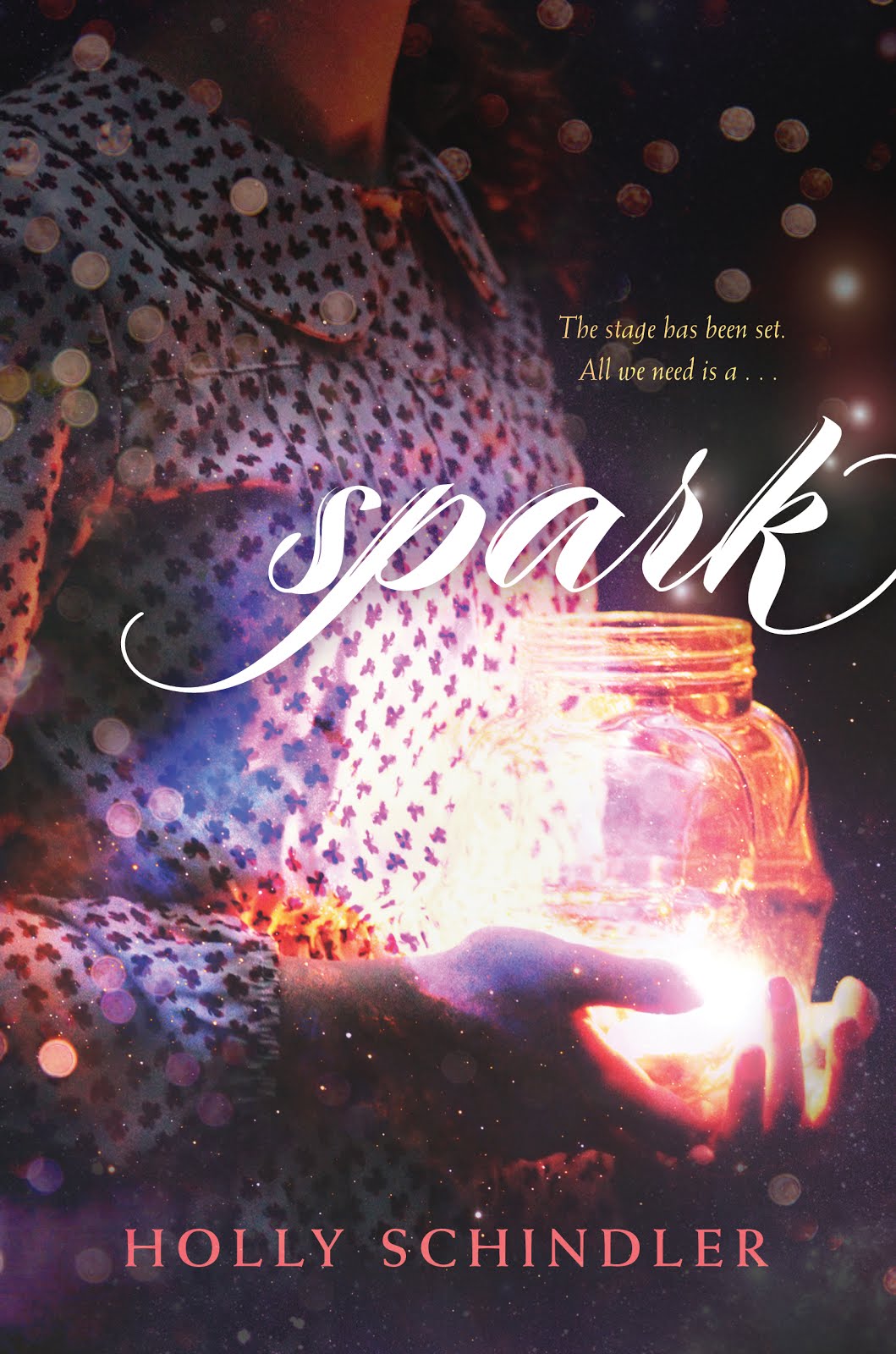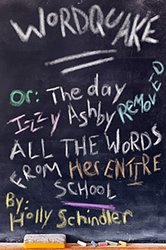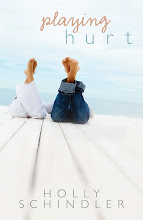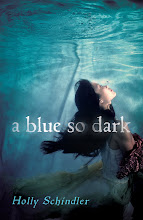All writers start out being enormous book nuts. And once you're bitten with the love of the written word, that love never dies. I'm always on the lookout for a new author to love...And I'm waiting with bated breath for Elana K. Arnold's debut YA, SACRED, which releases this November!
Elana's stopped by to tell us more about her forthcoming novel, and to shine some light on her own journey toward publication:
Congrats on your forthcoming debut! Please tell us about SACRED.
Thank you,
Holly! I am so proud of SACRED. Here’s the low-down:
Growing up on Catalina Island, off the California coast, Scarlett Wenderoth
has led a fairly isolated life. After her brother dies, her isolation deepens
as she withdraws into herself, shutting out her friends and boyfriend. Her
parents, shattered by their own sorrow, fail to notice Scarlett's pain and
sudden alarming thinness. Scarlett finds pleasure only on her horse, escaping
to the heart of the island on long, solitary rides. One day, as she races
around a bend, Scarlett is startled by a boy who raises his hand in warning and
says one word: "Stop."
The boy—intense, beautiful—is Will Cohen, a newcomer to the island. For
reasons he can't or won't explain, he's drawn to Scarlett and feels compelled
to keep her safe. His meddling irritates Scarlett, though she can't deny her
attraction to him. As their relationship blossoms into love, Scarlett's body
slowly awakens at Will's touch. But just when her grief begins to ebb, she
makes a startling discovery about Will, a discovery he's been grappling with
himself. A discovery that threatens to force them apart. And if it does,
Scarlett fears she will unravel all over again.
As a writer, I love to hear about those exciting ah-ha! moments. What was the germ of inspiration? How did the idea come to you?
I can’t take full
credit for the creation of SACRED. My good friend Amy Antoine was preparing to
move to Colorado, and I was helping her pack up her youngest daughter’s
bedroom. Amy and I were sitting together on the floor, folding up little pairs
of socks and putting them in a box, when Amy, in her characteristically
“I-have-the-answers-to-the-universe” way, said, “I know what you should do. You
should write a book about a superhero.”
Almost instantly, I had an image—of a girl, on a horse, racing along a trail,
and a boy—a stranger—blocking her path. Why was he there? What did he want?
What did he know about this girl that I hadn’t yet discovered myself? I had to know. That was the birth of SACRED.
My books always go through complete overhauls between first draft and published version. How did SACRED change as you sought representation (and publication)?
Actually, SACRED
didn’t change drastically. I had a system as I wrote that worked pretty well
for this book: before I began a new chapter, I’d reread and revise the chapter
before, and sometimes I’d even have to go further back in the story to make
changes and check for consistency. So by the time I finished the draft, every
chapter had been tweaked already. Really, the process was different than
anything I’d experienced before as a writer; the story came to me almost fully
formed. This was true all the way until copy editing, when the amazing people
at Random House pointed out to me my writing tics—words I tended to overuse,
dialogue tags that didn’t quite work, and this cool thing called “roller
coastering” that you don’t really want to do.
Did you always want to write? How did you come to writing as a career?
I have always been a
writer, but I spent many years telling myself that I was a short story writer.
Funny, though, when it came to reading, it had always been the novel I reached for—not the collection
of stories. Deep down, I wanted to be a novelist, but my fear of taking on a
full-length book seemed insurmountable. I don’t know what shifted inside of me,
but when I started writing SACRED I just knew
that I would complete it, unlike the many other unfinished projects I’d
abandoned. Suddenly I was a novelist—I was obsessed with my story, and for the
first time I understood what people meant when they said their characters came
alive on the page. Until SACRED I always thought people were lying when they
said stuff like that. For me, writing had been like moving a couple of Barbie
dolls around, forcing them to bend to my will, not really caring about them
past the moment I closed my computer. But Scarlett and Will and Lily and Andy
and Delilah—I couldn’t get these characters out of my head! I was in love with
all of them. The book was written in eleven weeks.
My publishing journey was quite long—it took seven and a half years of full-time effort just to land the first deal! What was your own journey like? How many manuscripts, rejections, years, etc. did it take to find your agent and editor?
Even though it only
took eleven weeks to write the first draft of SACRED, it took me more than
eleven years to get to the place that I could write it. Actually, it seems that
it took twice that long. Years ago, I wrote a collection of short stories that
I showed to a literary agent. She told me that if I could turn it into a novel,
she’d be interested in representing me. Fear stymied me, and I never managed to
do it. And I kicked myself for this time after time, sure that I’d blown my one
chance at publication. But then I wrote SACRED, and the magic energy that
carried me through its creation somehow didn’t dissipate when the manuscript
was finished. Finding my agent, Rubin Pfeffer, was magical, too. I had sent
queries to about six other agents, several of whom had rejected SACRED, when
one night, at about 10 o’clock, I sent a query letter and the first three
chapters of SACRED to Rubin, sort of on a whim. When I checked my email then
next morning, there was a message from Rubin asking for the full manuscript.
Two days later—Sunday night—he wrote again (I’d been checking my email about
every two minutes ever since his first message arrived). He told me he wanted
to talk.
How did you get the "yes"? How did you learn your book had been accepted?
This is my favorite
part of my story. It was Valentine’s Day. I was hanging out with my husband and
my two kids when my phone rang. And there was his name on the screen—Rubin
Pfeffer. I looked up at my husband, my heart absolutely still. “It’s Rubin
Pfeffer,” I half-whispered, half-choked. “Rubin Pfeffer doesn’t just call.” And I was right. He had news.
Random House/Delacorte loved SACRED—and they wanted to publish not only SACRED
but its yet-unwritten sequel, SPLENDOR, for which I’d sent a synopsis. My
husband, my kids, me—we were all out of our minds excited, jumping up and down,
screaming, laughing.
Best. Valentine’s
Day. Ever.
What do you now know that you most wish you could tell your unpublished self?
You are a
novelist. Somewhere, somehow, there is a book out there with your name on it.
You haven’t seen it yet; you haven’t even met the characters. But it’s out
there, waiting for you. Don’t freak out. Don’t beat yourself up. Don’t feel
like a failure because you haven’t written it yet. It’s out there.
What's been the biggest surprise about having your first book in development? What's been the most rewarding aspect of the process?
There haven’t
really been any surprises yet, probably because I dreamed about this happening
for so long and had read so many interviews of other writers. I went to
graduate school for creative writing, too, so I understood the process of
publication and all the backstage stuff. But the most rewarding part of the
process has been watching all these amazing experts—Rubin Pfeffer, Francoise
Bui (my editor at Random House/Delacorte), the design team, the copy
editors—watching all these people touch SACRED and help me make it better has
been so amazing. Usually writing feels like a pretty lonely endeavor, but the
editing and production process has felt like I am part of a team.
Probably the
most thrilling moment—aside from the day Rubin asked to represent me and that
amazing Valentine’s Day phone call—was when I first saw the cover of SACRED. I
had had no idea what they were planning for the cover, and I didn’t have any
image in my head about what I wanted the book to look like. But when I saw the
cover—beautiful, evocative, somehow mystical—I loved it instantly. It was
perfect.
What’s next from Elana K. Arnold?
Writing SACRED
was a transformative experience in so many ways. Once I wrote it, once I saw
myself as a novelist, suddenly stories were everywhere, banging on my door,
demanding to be written. So I wrote one of them. And guess
what? Random House/Delacorte picked it up, too!
This
book—BURNING—will be published in June of 2013, before the publication of
SPLENDOR. It’s totally unrelated to the other two books, and I love love love
it. Here’s the 411:
Ben: Having
just graduated from high school, Ben is set to leave Gypsum, Nevada. It’s good
timing, since the gypsum mine that is the lifeblood of the area is closing,
shutting the whole town down with it. Ben is lucky; he’s headed to San Diego,
where he’s got a track scholarship at the University of California. His best
friends, Pete and Hog Boy, aren’t as fortunate; they don’t have college to look
forward to. So to make his friends happy during their last days in town, Ben
goes with them to check out the hot chick parked on the side of Highway 447.
Lala: She and
her Gypsy family make money the way her people have been earning it for
centuries—by telling fortunes. Some customers choose Tarot cards; others have
their palms read. The thousands of people attending the nearby Burning Man
festival spend lots of cash—especially as Lala gives uncanny readings. But
lately Lala’s been questioning whether there might be more to life than her
upcoming arranged marriage. And the day she reads Ben’s cards is the day everything
changes for her . . . and for him.
Told from alternating points of view, BURNING
brims with the passion of its two protagonists, both at crossroads in their
lives, and both forever altered by a moment in time.






